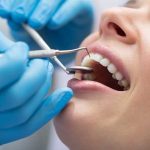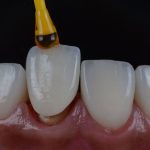Why Wisdom Teeth Removal Makes People Act Weird: Explained
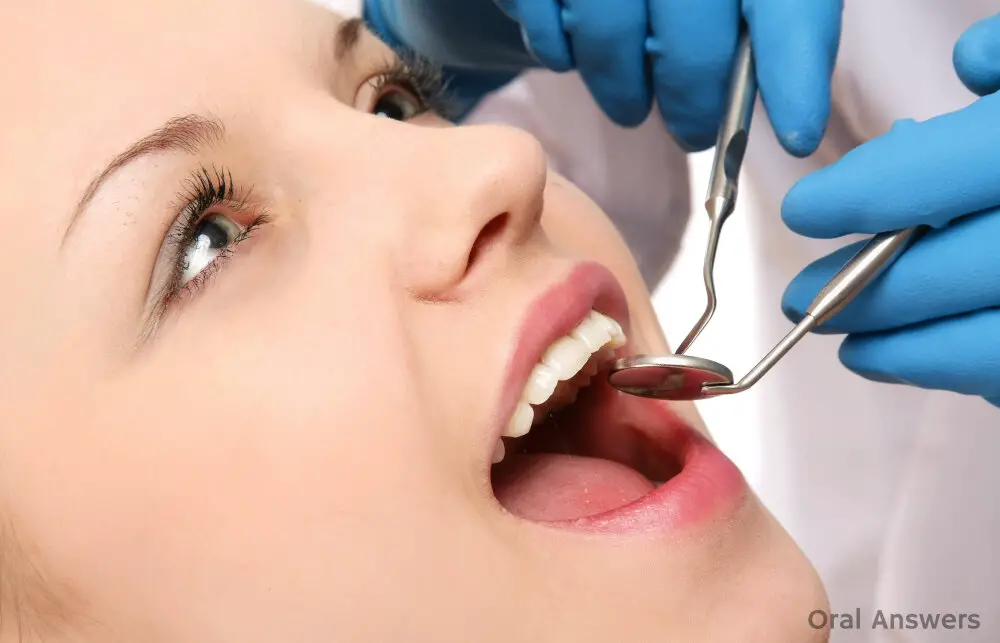
Wisdom teeth removal is a common dental procedure that many people undergo during their late teenage years or early adulthood. The reason for this is that the wisdom teeth, also known as third molars, usually emerge between the ages of 17 and 25, and in most cases, there is not enough space in the mouth to accommodate them. As a result, they can cause pain, swelling, infection, and other dental problems. However, what many people don’t realize is that wisdom teeth removal can also affect their behavior and mood in unexpected ways. Some people report feeling loopy, emotional, or even aggressive after the surgery, while others experience memory loss or confusion. So why do wisdom teeth removal make people act weird? Let’s find out. There are several possible explanations for why wisdom teeth removal can alter a person’s behavior. One is that the surgery itself can be traumatic and stressful, both physically and emotionally. The procedure involves cutting through the gums and bone to extract the teeth, which can cause pain, bleeding, and swelling. Additionally, the anesthesia used during the surgery can have side effects such as nausea, dizziness, and confusion. All of these factors can contribute to a person feeling disoriented, anxious, or irritable after the surgery. Another possible explanation is that the pain medication prescribed after the surgery can affect a person’s mood and behavior. Painkillers such as opioids can cause drowsiness, euphoria, and even addiction, while non-steroidal anti-inflammatory drugs (NSAIDs) like ibuprofen can cause stomach upset, headaches, and other side effects. As a result, a person may feel groggy, emotional, or out of sorts while taking these medications.
Wisdom teeth, also known as third molars, are the last set of teeth to emerge in the back of the mouth, generally during the late teenage years or early twenties. While these teeth were once necessary for our ancestors to grind tough food, modern humans no longer require them. In fact, because wisdom teeth often grow in crooked or at odd angles, they can cause pain, infection, and even damage to other teeth. As such, many dentists recommend that patients have their wisdom teeth removed. The procedure is relatively simple and safe, but can cause temporary discomfort and swelling, which is why people may act weird after the surgery.
Wisdom teeth removal is a common dental procedure that involves the extraction of the third molars at the back of the mouth. After the surgery, patients may experience a range of symptoms such as pain, swelling, bleeding, and difficulty opening their mouth. Additionally, patients may feel groggy or dizzy due to the effects of anesthesia. They may also have difficulty eating or speaking, and are advised to consume soft foods and avoid physical activity for several days. In some cases, patients may experience mood swings or emotional changes due to the stress of the surgery. Overall, patients should expect some discomfort and take proper precautions to ensure a smooth recovery.
The Procedure
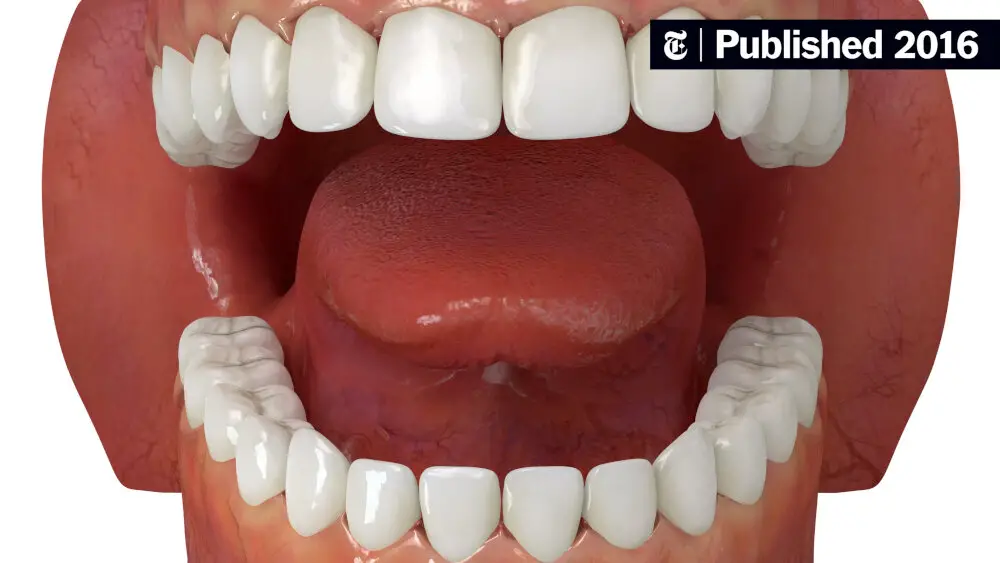
The procedure for wisdom teeth removal is a routine surgery performed by dental surgeons. The process involves the application of local or general anesthesia depending on the patient’s preference. The dentist then makes an incision in the gum tissue to expose the tooth and bone. The tooth is then removed using special tools, and the area is cleaned and sutured. While the procedure itself is relatively simple, the recovery process can be uncomfortable. Patients are advised to rest and avoid strenuous activities for a few days after the surgery to allow the area to heal properly. Despite being a common procedure, wisdom teeth removal can have some unexpected side effects. One of the most common side effects is a feeling of grogginess or confusion after the surgery. This is typically due to the use of anesthesia during the procedure. Although patients are awake during the surgery, they may not remember much of it because of the sedative effects of the anesthesia. Additionally, some patients may experience nausea or vomiting after the procedure due to the anesthesia or the painkillers prescribed to manage post-operative pain. Overall, while wisdom teeth removal is a safe and common procedure, it is important to be aware of the potential side effects and to follow your dentist’s post-operative instructions closely to ensure a smooth recovery.
Wisdom teeth, also known as third molars, are the last set of teeth to develop in the back of the mouth. In most cases, they emerge between the ages of 17 and 25, but they can cause problems due to lack of space in the mouth. Wisdom teeth removal is a surgical procedure that involves the extraction of one or more of these teeth to alleviate pain, prevent infection, and protect adjacent teeth from damage. The procedure is typically performed under local or general anesthesia and involves making an incision in the gum tissue to access the tooth and then using specialized instruments to remove it. Recovery time varies, but patients can expect some discomfort and swelling in the days following the procedure. Proper aftercare is crucial to prevent complications and ensure a smooth recovery.
During a wisdom teeth removal procedure, patients are typically given one of three types of anesthesia: local anesthesia, which numbs only the area being worked on; sedation anesthesia, which puts the patient in a semi-conscious state; or general anesthesia, which renders the patient completely unconscious. Local anesthesia is the most commonly used type, as it allows the patient to remain awake and aware during the procedure while preventing any pain. Sedation anesthesia may be used for patients who experience anxiety or fear during dental procedures, as it can help them relax and reduce discomfort. General anesthesia is typically reserved for more complex cases or patients with medical conditions that require it.
Wisdom teeth removal is a common procedure that involves surgical removal of the third molars. Although it is a routine operation, it is not without risks and complications. Some of the risks associated with wisdom teeth removal include bleeding, infection, and nerve damage. Bleeding is a common complication that typically occurs immediately after the procedure, but can also manifest a few days later. Infection is another possible risk that can occur if bacteria enter the surgical site. Nerve damage is a rare but serious complication that can cause numbness or weakness in the tongue, lips or chin. These risks can be minimized by following the post-operative instructions provided by the dentist or oral surgeon, and seeking prompt medical attention if any complications arise.
Pain Management

Pain management is a crucial aspect of wisdom teeth removal. This dental procedure can cause significant discomfort, and patients need proper pain management to ease their symptoms. Pain management may include medications such as over-the-counter pain relievers like acetaminophen or ibuprofen, or prescription medications like opioids. However, opioids are typically reserved for severe pain and are closely monitored due to their potential for addiction. Additionally, other pain management techniques like ice packs, warm compresses, or salt water rinses may be recommended to alleviate discomfort and promote healing. It’s essential to follow the pain management plan prescribed by your dentist or oral surgeon to ensure a smooth recovery. It’s also important to note that everyone’s pain tolerance and recovery time may vary. Some patients may experience mild discomfort that can be managed with over-the-counter pain relievers, while others may require stronger prescription medications. Regardless of the severity of the pain, patients should communicate with their dental professional to ensure that their pain management plan is effective and adjusted as necessary.
After the removal of wisdom teeth, patients may experience various levels of pain and discomfort. To manage this pain, there are a variety of options available. Over-the-counter pain medications such as acetaminophen and ibuprofen can be effective in reducing mild to moderate pain. For more severe pain, prescription pain medications such as codeine or hydrocodone may be prescribed by a dentist or oral surgeon. Additionally, ice packs can be used to reduce swelling and inflammation, and patients are often advised to rest and avoid strenuous activity for a few days following the procedure. It is important for patients to closely follow their dentist or oral surgeon’s post-operative instructions to ensure a successful recovery.
Pain medications are commonly prescribed after wisdom teeth removal surgery to manage post-operative discomfort. While they can be effective in reducing pain, they also come with potential side effects. One of the most common side effects is drowsiness, which can impact a person’s ability to drive or operate machinery. Other side effects may include nausea, vomiting, constipation, and dizziness. It is important to follow the prescribed dosage and to inform the dentist or oral surgeon of any adverse reactions to the medication. In some cases, alternative pain management strategies may be recommended.
Managing pain and recovery at home after wisdom teeth removal can be a challenging and uncomfortable process, but there are some tips that can help. First and foremost, it’s crucial to rest and avoid any strenuous physical activity during the initial recovery period. Applying ice packs to the affected area for the first 48 hours can help reduce swelling and discomfort. Soft foods and liquids should be consumed for several days following the procedure to avoid aggravating the surgical site. Additionally, over-the-counter pain relievers can be taken as directed to help manage pain. Maintaining good oral hygiene by gently brushing and rinsing with saltwater can also aid in the healing process. By following these tips, patients can help ensure a smoother and more comfortable recovery after wisdom teeth removal.
Effects on Mood and Behavior

The effects of wisdom teeth removal on mood and behavior can be quite significant, and may vary depending on the individual and their specific circumstances. Some people may experience feelings of anxiety or depression following the procedure, which could be related to the stress and discomfort associated with the surgery itself. Others may feel more irritable or emotional, which could be related to the pain and discomfort of the recovery process. In addition to these emotional effects, there may also be changes in behavior that are associated with wisdom teeth removal. For example, some people may find that they have difficulty sleeping or eating properly during the recovery period, which could lead to a range of other issues. Others may become more withdrawn or avoid social situations, which could be related to feelings of embarrassment or discomfort about their appearance or physical condition. Overall, it is important to be aware of these potential effects and to take steps to manage them appropriately, such as seeking support from friends and family or talking to a healthcare professional about any concerns.
When wisdom teeth emerge, they can cause a lot of discomfort, pain, and swelling. Thus, many people opt for wisdom teeth removal to get rid of the discomfort. However, the surgery can have an impact on mood and behavior, as it is a major dental procedure that involves anesthesia and painkillers. The anesthesia used during surgery can cause feelings of drowsiness, confusion, and disorientation, which can lead to changes in mood and behavior. Additionally, the post-surgery period can be uncomfortable and painful, which can affect a person’s mood and behavior. They may feel irritable, moody, and anxious during this time. Furthermore, pain medications can also have side effects, such as dizziness, drowsiness, and nausea, which can further exacerbate mood changes. Overall, wisdom teeth removal can have an impact on mood and behavior, but with proper care and rest, most people return to their normal selves within a few days.
Scientific studies have shown that the phenomenon of acting weird after wisdom teeth removal is not uncommon. The removal of wisdom teeth can cause significant pain and discomfort, which can lead to changes in mood and behavior. Additionally, the use of anesthesia during the procedure can have a profound effect on the brain, leading to temporary memory loss, confusion, and altered perception of reality. This combination of factors can result in patients acting differently than they normally would, exhibiting behaviors such as slurred speech, drowsiness, and even agitation. However, the effects of wisdom teeth removal tend to be short-lived, with most patients returning to their normal selves within a few days.
Many patients who undergo wisdom teeth removal commonly experience mood swings, anxiety, and depression. These feelings may arise due to the stress and discomfort associated with the procedure, as well as the medications used for pain management. The removal of wisdom teeth can be a traumatic experience for some individuals, leading to feelings of anxiety and depression. Additionally, the physical pain and discomfort of the procedure can also contribute to mood swings. It is crucial for patients to communicate with their healthcare provider about any emotional changes they experience during their recovery, as proper management can help alleviate these symptoms.
Coping Strategies

Coping strategies are important for anyone dealing with the aftermath of wisdom teeth removal. The procedure can be uncomfortable and even painful, resulting in a need for effective ways to manage pain and discomfort. One common coping strategy is taking pain medication as prescribed by the dentist or oral surgeon. This can help alleviate pain and reduce discomfort, allowing the individual to rest and recover more comfortably. Other coping strategies include using ice packs to reduce swelling, eating soft or liquid foods to avoid aggravating the surgical site, and drinking plenty of fluids to stay hydrated and promote healing. Additionally, distractions such as reading, listening to music, or watching a movie can provide a welcome diversion from discomfort and help pass the time while waiting for the healing process to complete. It’s important to note that while coping strategies can be helpful in managing the discomfort associated with wisdom teeth removal, they are not a substitute for proper aftercare. Individuals should follow their dentist or oral surgeon’s instructions closely, including taking any prescribed medications as directed and avoiding certain activities that could interfere with healing. By taking care of themselves and utilizing effective coping strategies, individuals can make the recovery process smoother and more comfortable, allowing them to return to their normal activities as quickly as possible.
After wisdom teeth removal, many people experience mood and behavior changes due to various reasons, including pain, medications, and discomfort. However, there are some tips to cope with these changes and make the recovery process smoother. Firstly, it is essential to follow the post-operative instructions provided by the dentist or oral surgeon strictly. Secondly, take enough rest and avoid any strenuous activities that may increase pain and discomfort. Thirdly, maintain a healthy diet and avoid hard, crunchy, and spicy foods that may irritate the surgical site. Fourthly, practice good oral hygiene, including gentle brushing and rinsing, to prevent infections. Lastly, it is crucial to be patient and give yourself time to heal, and reach out to your dentist or oral surgeon if you experience any concerns or complications.
After wisdom teeth removal, it’s essential to prioritize self-care and relaxation to promote healing and reduce discomfort. To ease pain and swelling, apply a cold compress to the affected area for 20 minutes at a time. Resting also plays a crucial role in recovery, so allow yourself time to relax and avoid any strenuous activities. Additionally, staying hydrated by drinking plenty of water and avoiding straws can prevent dry sockets, a painful complication that can occur after extraction. Incorporating gentle activities such as meditation, yoga, or reading into your daily routine can also help alleviate stress and promote relaxation during this time. Remember, taking care of yourself after wisdom teeth removal can make all the difference in how quickly and smoothly you recover.
It is essential to seek professional help if you experience persistent or severe symptoms after wisdom teeth removal. While some pain and discomfort are normal, excessive bleeding, swelling, or infection can indicate a more severe issue. Additionally, if you notice difficulty opening your mouth or anything unusual about your healing process, it is crucial to consult with a dental professional. Ignoring persistent or severe symptoms can lead to complications and prolong your recovery time. It is better to be safe than sorry and seek expert advice to ensure a successful healing process after wisdom teeth removal.
In the article titled \Why Wisdom Teeth Removal Makes People Act Weird Explained,\ the author discussed the reasons behind the strange behavior exhibited by individuals who have undergone wisdom teeth removal. The main points of the article highlighted the effects of anesthesia and pain medications, the discomfort and pain associated with the procedure, and the psychological impact of the surgery on individuals. The article emphasized that the combination of these factors can lead to a range of behaviors, including confusion, disorientation, and emotional disturbance. Additionally, the author provided useful tips for those planning to undergo wisdom teeth removal, including preparing for the recovery period and seeking support from friends and family. Overall, the article provided valuable insights into the often-overlooked effects of wisdom teeth removal on individuals.
The effects of wisdom teeth removal on mood and behavior are often not fully understood by individuals undergoing the procedure. This lack of knowledge can lead to confusion and frustration, as patients may experience unexpected changes in their emotional state or behavior. Understanding the potential impact of wisdom teeth removal on mood and behavior is important for both patients and healthcare professionals. By being aware of these effects, patients can better prepare for the recovery process and manage any emotional or behavioral changes that may arise. Healthcare professionals can also provide more comprehensive care by addressing these potential effects and offering support throughout the recovery period. Ultimately, increased understanding of the effects of wisdom teeth removal on mood and behavior can lead to improved patient outcomes and a more positive overall experience.
During the recovery process after wisdom teeth removal, it is crucial for patients to take care of themselves to ensure a smooth and speedy recovery. It may be tempting to indulge in solid foods or skip medication, but sticking to a soft diet and taking prescribed medication as directed can prevent complications and reduce discomfort. It’s also important to maintain good oral hygiene by gently brushing and rinsing your mouth to prevent infection. While it may be tempting to return to your regular routine, it’s essential to avoid strenuous activities and get plenty of rest to allow your body to heal. Remember, taking care of yourself during recovery is an investment in your long-term health and wellbeing.
Conclusion
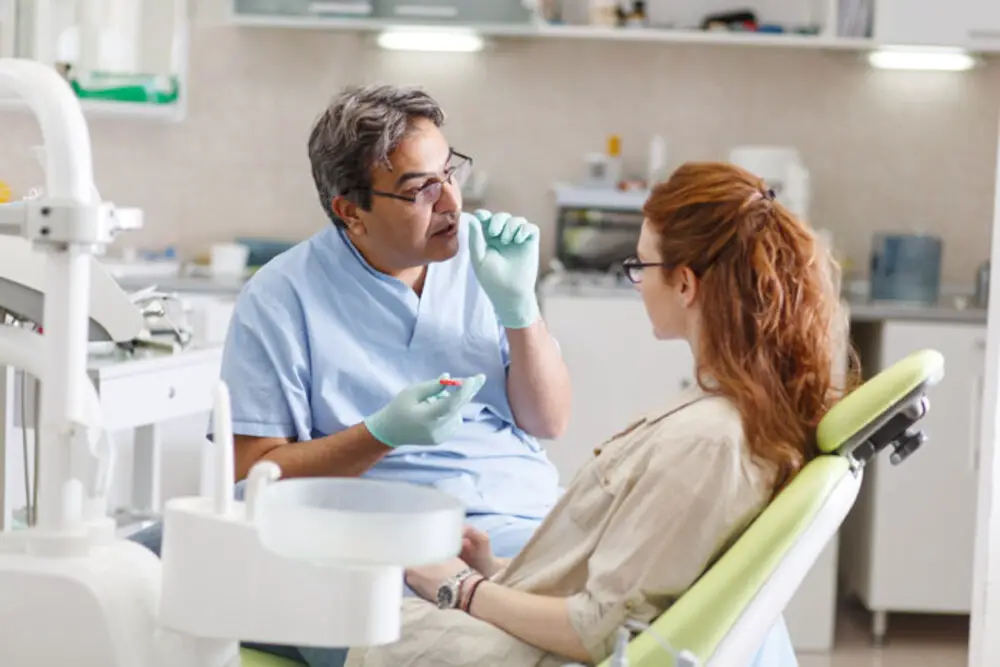
In conclusion, wisdom teeth removal can cause a variety of physical and emotional reactions in patients. From pain and swelling to anxiety and mood swings, it is not uncommon for individuals to act \weird\ after the procedure. However, understanding the reasons behind these reactions can help patients feel more prepared and less alone in their experiences. It is important to follow post-operative instructions and seek medical attention if necessary to ensure a smooth recovery. While the process may be uncomfortable, it ultimately leads to a healthier and happier dental state in the long run.

